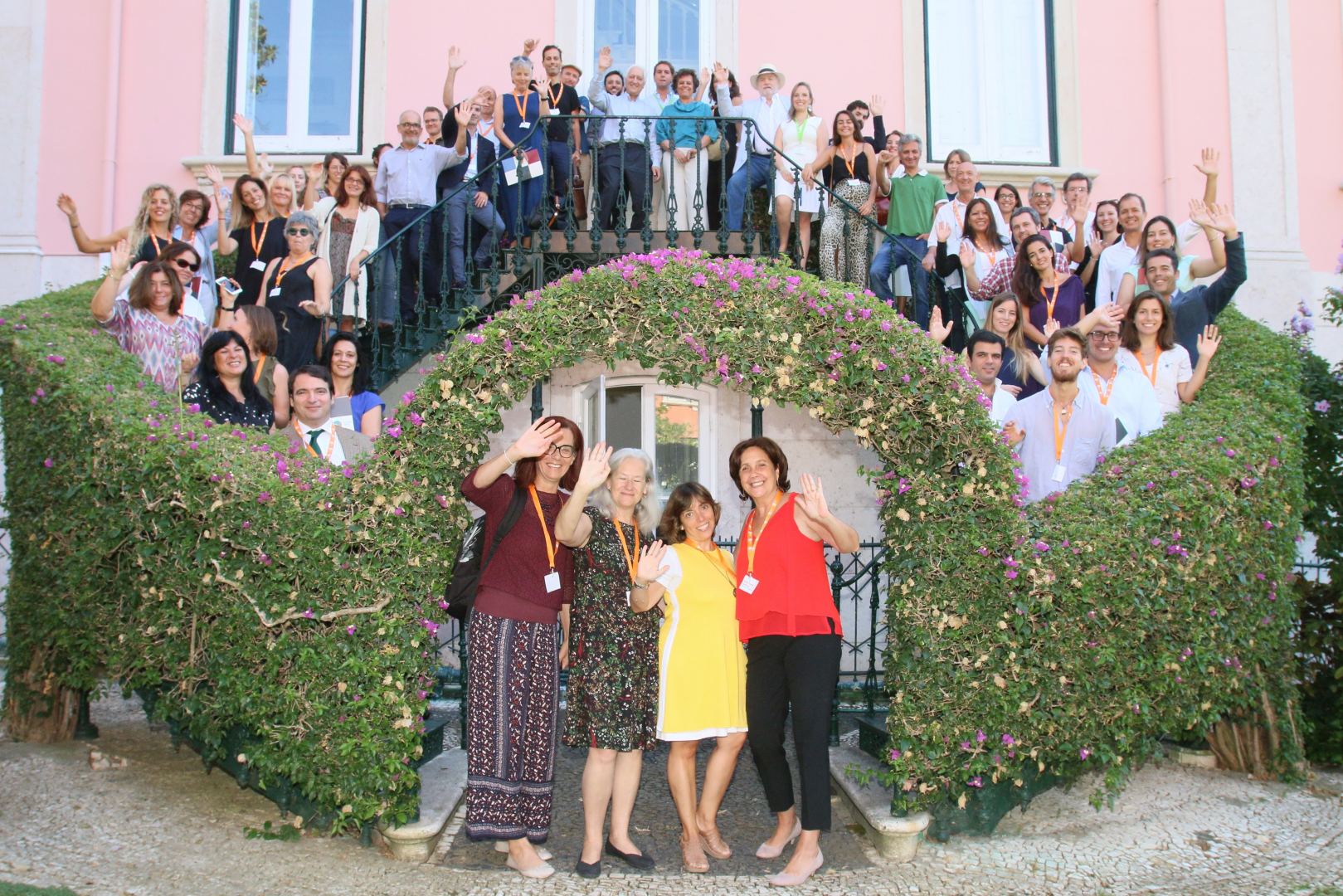Cities under pressure
At a recent conference at the British Council in Lisbon, non-governmental organisation Build the City discussed ways in which the city could thrive while protecting the people who live there.
Tension has been mounting in Lisbon due to international speculation in Portuguese real estate growing fast in recent years and the capital city becoming unaffordable for locals. That was one of the central themes of the conference ‘Cities Under Pressure’ recently held at the British Council in Lisbon, which was organised by NGO Build the City.
Build the City was founded in 2017 and is linked to Cities Under Pressure. This was the third conference held this year by the two entities, following similar initiatives in Berlin and Amsterdam, where strategies to minimise the negative impact of tourism were debated.
“Lisbon, don’t be French,” said Guillaume de Piédoüe, a French entrepreneur and writer, during the first part of the conference. Referring to the popular song by the great singer Amália Rodrigues (“Lisboa, Não Sejas Francesa”), he described how the city’s oldest neighbourhoods were losing their character.
Catarina Vaz Pinto, the city’s councillor for culture, talked of Lisbon as a “hospitable city”, in an optimistic speech that was followed by musician Bernardo Pereira de Lima playing the melancholic Portuguese guitar.
“Lisbon is a cosmopolitan and welcoming city; that’s part of our identity,” she tells Essential Business. “From a strategic point of view, it is a bridge across the Atlantic and it has always been a meeting point for people of different cultures.”
But as some European neighbours turn ugly with borders closing to refugees and xenophobia mounting, the councillor pointed out that the city had to continue to fight to be “open” while remaining hospitable to people living there, as tourism and gentrification continue to impact cities around the world.
“It is not only a tourist destination but also a place where people like to live. There is great pressure on the city and it doesn’t just have to do with tourism but also with global housing and gentrification processes; it is a global economy problem,” she said, adding that “through culture we can find a new balance for people to live in the city”.
Catarina Vaz Pinto cites a programme launched by the city council aimed at saving shops whose historical and cultural heritage contributes to the city’s identity as a good example. The initiative granted €250,000 to 63 shops seeking to invest in conservation and restoration works or to promote the shops through cultural activities. But she admits that housing is the main problem the country faces.
Portugal had to sign a €78 billion programme in 2011 when it was on the verge of bankruptcy, in exchange for harsh austerity measures. As part of this programme it signed with the European Commission and International Monetary Fund, Portugal introduced a new law aimed at liberalising the housing market.
Today Lisbon is unrecognisable compared to how it looked before the financial crisis. Alfama, one of the city’s historic neighbourhoods, is bristling with tuk-tuks and crowded streets as tourists take out selfie-sticks and hurdle around with maps. Crumbling homes gave way to shiny new colourful façades.
Portugal has attracted a wave of foreign investment partly thanks to an attractive tax regime for EU and non-EU citizens, which has contributed to fuelling the country’s property boom; so has the government’s golden visa scheme, which grants access to residency through the purchase of a property of at least €500,000. The tourism boom has led hundreds of buildings to be refurbished for short-term rentals.

Meanwhile, 1,678 people were evicted last year because they couldn’t afford their rent. According to Confidencial Imobiliário, housing prices in Lisbon rose 35% from 2012 to 2016, when the highest level since 2007 was seen. According to another survey from Mercer, Lisbon is the 93rd most expensive city to live in the world, climbing 44 places from 2017.
What mainly concerns lawyer Duarte Lima, one of the members behind Build the City, is that the younger generations are being pushed out of the city.
“It is important to think of the capital of a country as where the centre of decision is and where the critical mass is. If citizens that study in universities can’t live here, then that’s going to have an impact,” he says.
He is also concerned that while people aged over 65 have indefinite contracts and cannot easily be evicted, they are often convinced by real estate agencies to leave their homes for an amount of money, which he says constitutes “a kind of bullying”.
The housing problem has become an issue for the Socialist minority government of António Costa, which is backed by the Left Bloc and Communist party. The left-wing parties have pressed for tighter rental laws and for the elderly to be protected. While the Lisbon City Council introduced the Programme for Accessible Rents initiative, which offered around 6,000 apartments in 15 neighbourhoods across the Portuguese capital, the minority Left Bloc party has said this was not a solution and wasn’t really providing enough affordable homes.
The Portuguese government recently revealed new measures to increase affordable housing, including lower rates of value-added tax for long-term housing contracts and more security for vulnerable tenants. The Lisbon council is also about to present a measure to limit the number of new short-term rentals. But Lisbon isn’t alone in introducing these kinds of measures.
Other cities like Amsterdam are introducing harsher measures: for instance, it has imposed a 30-day limit for Airbnb-style rentals.
The Lisbon Council recently revealed it would invest €201 million until 2021 in housing, including €49 million for building council flats. The number of people requesting social housing in Lisbon has risen dramatically, with 6,312 citizens applying, 1,000 more than registered in 2010.
Joanna Hecker, an American working for Portugal’s Trienal de Arquitectura, who decided to stay in Lisbon after passing through in 2012 and who now runs the Lisbon Living Room Sessions, said she was afraid the city was pushing out the working-class and artists.
“Lisbon goes much deeper than money,” she said, talking about why she had decided to move here. “It’s about open space, open door, open mind.”










